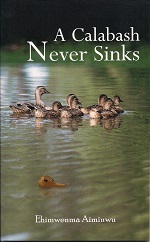Historians say that most of those who founded these groups were sons or relatives of the kings who once reigned over the powerful Benin Kingdom. Little wonder that some, if not all, of the groups share the same cultural festivals though with different labels. The people of Esanland who occupy the five local government areas that make up Edo Central Senatorial District celebrate annually the new yam festival. It ushers in the harvest season. The one-day event highlights the aspect of youths clearing the farm plots of the elders who reward them with bowls of cooked beans.
This aspect of the festival takes place in the morning while later in the day, there is great dancing and feasting on the streets and in the homes. The event, usually marked with fanfare, is planned for as soon as the farming season starts. Indigenes of the communities who live abroad make it a point of duty to come home for this festival. The period also enables in-laws renew acquaintances and new marriages are contracted and consummated.
However, the degree of cooking and dancing varies from one Esan community to the other. The celebration is not as elaborate in Ubiaja as it is in Ekpoma or Uromi. The reason for this, an indigene said, is that some settlements have become more metropolitan over time. For the people of Ewohinmi, the month of June is special for a number of reasons. It is the month which heralds the new year in the this community located on the banks of the River Niger. “Homage is paid to ancestors to express gratitude for protecting the people throughout the year”, a traditional chief told The News.
In its four-day duration, the celebration features entertainment of neighbors and strangers, services at the shrines, exchange of gifts and traditional dances. On the last day, all the inhabitants appear in their best Christmas attire dancing to the market square. Among the Ewohinmi people, the new yam festival, called Utu, is celebrated mainly by women. They use the event to make presents of Igbu (loin-cloth) traditionally woven to their husbands for taking proper care of them during the year. For the men, Ufu serves as a rest day when all their farming implements are taken to the ancestral shrine for sanctification. Thereafter, each husband stands out to pray for the good health of his wife and all members of the family. Cutlasses are left unused for three days at the shrine before they can be retrieved by their owners.
Ancestral worship is also a common practice among all Edo people. In Ewu, Ighele is an annual festival to appease the ancestors and pray for their continued love and protection. The festival celebration lasts four days. As in the other communities, women on this special day, dress gorgeously in their best traditional attire and parade the town. The men take their turn to parade on another day. Part of the celebration is the test of strength and courage of the men folk. So, some men who can endure the pain submit themselves to some horsewhipping to the admiration of all at the shrine of Ighele.
One other interesting feature of the festival is the smearing, by men and women, of parts of their bodies with charcoal. This is believed to cast them in the same mould of departed elders of the community as potential ancestors.
Yet, there are other festivals among the Akoko-Edo people of Edo State. The Emonorhe is one in which men leave the age of boys to become men or elders. It is a rite of passage where the boys are called Umadheghe and as elders, they become Okhitoya. Celebrated once in 40 years, it is a four-week event which features only males who are between 55-100 years old. A total of up to 200 are initiated during the festival depending on how many attained age 55.
Prior to the initiation, all those qualified are subjected to ritual purification at Eguahi shrine for two weeks. They are cleansed of foul spirits. The period also serves as tutorial time for them to receive instructions on the duties and expectations of an Okhitoya ( elder) of the clan. Women are barred from gaining access to the men at this shrine, though their wives are expected to feed them very well. The food is brought outside the shrine from where acolytes take them in.
Nigerian Ladies
Once the rituals are over, the Okhitoya delegate one amongst them to kill a dog as sacrifice as they each receive ashe (sword of office) and royal beads. They troop out of the shrine on the sound of the Agba drum (which sounds once in forty years) and then choose a new name. This festival is also done when young maidens present themselves for marriages. Such conjugal unions contracted during this period are believed to endure because of the timing. So not many Akoko-Edo people take the festival lightly.
For the people of Somorika, Ofarhe is one festival which they hold in high esteem. A five-day event, young men are subjected to stringent tests of their physical fitness and potency of their charms. Those who succeed take part in wrestling contests to the admiration of young maidens who fall in love and become wives before the festivities are rounded off. There is plenty of pounded yam and husbands seize the opportunity to honor their parents-in-law with loads of yam tubers and plates of pounded yam.
In the past, these cultural festivals served to showcase the rich music and dance, drama, costumes and produce of the people. There is, however, a disturbing trend. Most of the festivals are no longer being celebrated. The advent of Christianity is believed to have contributed to this development. Most Christians believe that the festivals were to appease idols.








